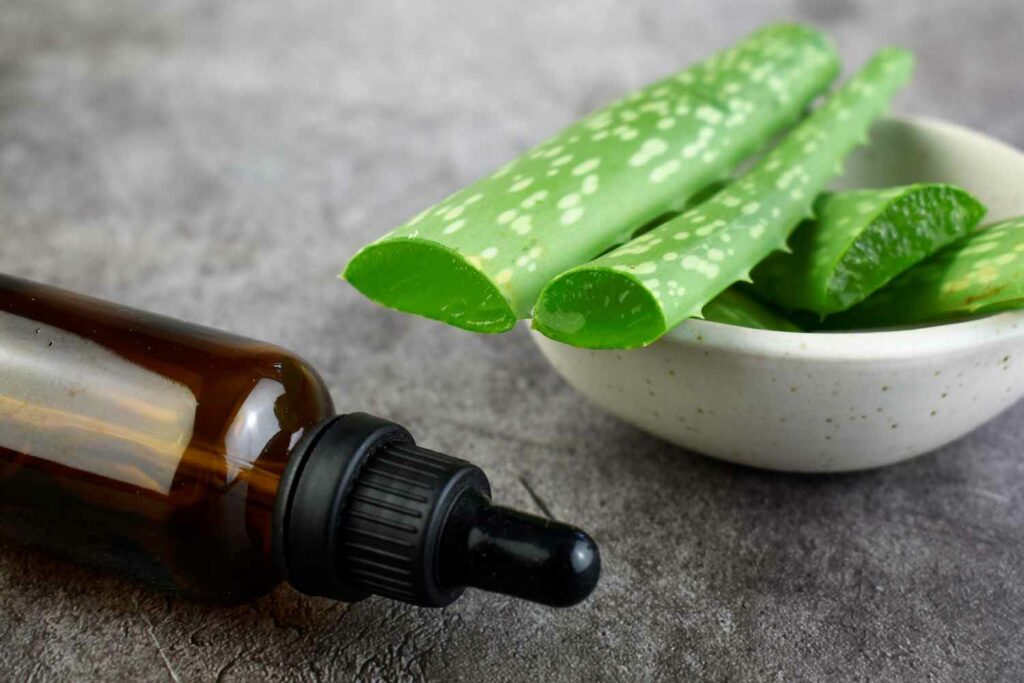Homeopathy has gained recognition for its gentle yet effective approach to treating various ailments. One such condition that has piqued the interest of individuals seeking natural alternatives is high blood sugar or diabetes. While conventional medicine plays a crucial role in diabetes management, many are turning to homeopathic remedies to complement their treatment plans. In this blog, we will delve into the world of homeopathic treatments for high blood sugar, exploring alternative approaches that aim to restore balance to the body holistically.
Contents
Can Diabetic Patients Have Homeopathy Medicine?
 Homeopathic medicines are generally considered safe for diabetic patients. Because they are highly diluted substances that work on an energetic level rather than a biochemical one. Homeopathy operates on the principle of “like cures like” and involves diluting natural substances to the point where they become non-toxic while retaining their healing properties. These diluted remedies are typically administered in pellets, drops, or tablets. Ultimately, making them easily consumable for individuals, including those with diabetes.
Homeopathic medicines are generally considered safe for diabetic patients. Because they are highly diluted substances that work on an energetic level rather than a biochemical one. Homeopathy operates on the principle of “like cures like” and involves diluting natural substances to the point where they become non-toxic while retaining their healing properties. These diluted remedies are typically administered in pellets, drops, or tablets. Ultimately, making them easily consumable for individuals, including those with diabetes.
Homeopathic remedies stimulate the body’s vital force, encouraging self-healing and balance. However, diabetic patients must consult with a qualified homeopathic practitioner or their primary healthcare provider before incorporating homeopathic medicines into their routine. This ensures that the selected remedies are compatible with the individual’s overall health and do not interfere with any existing diabetes management plan or medications.
Best 6 Homeopathic Treatments For High Blood Sugar
While some people may choose to explore homeopathic treatments for high blood sugar, these approaches should not replace conventional medical advice and prescribed diabetes management strategies. Homeopathic remedies are considered complementary and should be used under the guidance of a qualified homeopathic practitioner.
Here are some homeopathic treatments for high blood sugar:
Syzygium Jambolanum (Jamun)
Syzygium Jambolanum, commonly known as Jamun, is a homeopathic remedy often considered for its potential benefits in managing high blood sugar levels. Derived from the seeds of the Jamun fruit, this remedy is believed to have a positive influence on glucose metabolism. Homeopathic practitioners may recommend it for individuals experiencing symptoms associated with diabetes. Such as excessive thirst, frequent urination, and fatigue.
Phosphoric Acid
This may be considered for individuals with diabetes who experience profound weakness, mental and physical exhaustion, and apathy. It is often indicated when there is a history of emotional or physical shocks leading to a debilitated state. This remedy is chosen based on the principle of “like cures like,” where the symptoms experienced by an individual guide the selection of the appropriate remedy.
Gymnema Sylvestre
While Gymnema Sylvestre is more commonly associated with traditional herbal medicine, it is sometimes used in homeopathic preparations for individuals with diabetes. Known for its potential blood sugar-lowering effects, Gymnema Sylvestre is thought to have an influence on insulin function and glucose absorption in the intestines. Homeopathic formulations that include Gymnema Sylvestre may be recommended based on the unique symptoms and constitution of the individual.
Arsenicum Album
 Arsenicum Album is a homeopathic remedy that may be considered for individuals with diabetes who exhibit symptoms such as increased thirst, restlessness, and anxiety. It is often chosen when there is a sense of insecurity and a need for order and control in the person’s life. Arsenicum Album is believed to address both physical and mental symptoms. And, making it potentially applicable to various aspects of diabetes management. As with any homeopathic remedy, its use should be guided by a qualified homeopathic practitioner who can assess the individual’s complete symptom picture and overall health.
Arsenicum Album is a homeopathic remedy that may be considered for individuals with diabetes who exhibit symptoms such as increased thirst, restlessness, and anxiety. It is often chosen when there is a sense of insecurity and a need for order and control in the person’s life. Arsenicum Album is believed to address both physical and mental symptoms. And, making it potentially applicable to various aspects of diabetes management. As with any homeopathic remedy, its use should be guided by a qualified homeopathic practitioner who can assess the individual’s complete symptom picture and overall health.
Lycopodium Clavatum
Lycopodium Clavatum is a homeopathic remedy commonly considered for digestive issues associated with diabetes. Individuals who may benefit from Lycopodium often experience symptoms such as bloating, gas, and a tendency towards sweet cravings. This remedy is selected based on the principle of individualization, where the unique symptoms and characteristics of the person guide the choice of the remedy. Lycopodium is thought to address both physical and emotional aspects of the individual, making it a potentially useful component of a comprehensive diabetes management plan.
Uranium Nitricum
This is used for people who exhibit symptoms such as excessive thirst, increased urine output, and weakness. It is thought to have an affinity for the kidneys. And may be recommended when there are specific indications of kidney involvement in diabetes. As with any homeopathic remedy, the choice of Uranium Nitricum is based on a thorough assessment of the individual’s symptoms and overall health. Collaborating with a qualified homeopathic practitioner is crucial to ensuring the remedy’s suitability and integration into a holistic diabetes care plan.
It’s crucial to emphasize that the effectiveness of homeopathic treatments can vary from person to person. Moreover, individualized care and a comprehensive approach, including lifestyle modifications and conventional medical interventions, are essential for managing diabetes.
Which Mother Tincture Is Used In Homeopathy For Diabetes?
In homeopathy, the selection of a remedy, including mother tinctures, is based on an individual’s unique symptoms and overall constitution rather than a one-size-fits-all approach. Some commonly used mother tinctures in homeopathic treatments for high blood sugar may include:
- Gymnema Sylvestre: It is known for its potential blood sugar-lowering effects and is used in both homeopathic and herbal medicine.
- Cephalandra Indica: This is believed to have an impact on blood sugar levels and may be considered in homeopathic formulations.
- Syzygium Jambolanum: Derived from the seeds of the Jamun fruit, Syzygium Jambolanum is often considered for its potential benefits in managing high blood sugar levels.
- Crataegus Oxyacantha: While not specific to diabetes, Crataegus Oxyacantha may be considered for individuals with cardiovascular symptoms often associated with diabetes.
It’s important to emphasize that the selection of a mother tincture or any homeopathic remedy depends on a thorough evaluation of the symptoms, mental and emotional state, and overall health. Therefore, seeking guidance from a qualified homeopathic practitioner is essential for safe and effective use. Homeopathic treatment is typically used as a complementary approach to conventional medical care.
Considerations In Homeopathic Treatments For High Blood Sugar
 When considering homeopathic treatments for high blood sugar, it’s essential to approach the situation with care and attention. Here are some important considerations:
When considering homeopathic treatments for high blood sugar, it’s essential to approach the situation with care and attention. Here are some important considerations:
Collaboration with Healthcare Providers
Homeopathic treatment should complement conventional medical care rather than replace it. It’s essential to maintain open communication with your primary healthcare provider, informing them of any homeopathic treatments you are considering. This ensures that all aspects of your health care are coordinated.
Diet and Lifestyle
Homeopathic treatments often emphasize the importance of a balanced diet and a healthy lifestyle. Maintaining a well-rounded and nutritious diet, along with regular exercise, plays a significant role in managing high blood sugar levels. Your homeopathic practitioner may guide dietary and lifestyle changes to support your overall well-being.
Monitoring Blood Sugar Levels
Regular monitoring of blood sugar levels is crucial, especially if you have diabetes. Homeopathic treatments should be integrated into a broader diabetes management plan. This includes monitoring blood glucose levels, taking prescribed medications (if applicable), and following your healthcare provider’s recommendations.
Safety and Compatibility
Some homeopathic remedies may interact with conventional medications or other treatments. It’s important to inform both your homeopathic practitioner and primary healthcare provider about all the treatments you are undergoing. This will ensure safety and avoid potential interactions.
Gradual Progress and Patience
Homeopathic treatments often work gradually, and improvements may take time. Patience is essential in the homeopathic approach. Because the goal is to stimulate the body’s self-healing mechanisms. Be realistic about expectations and communicate openly with your homeopathic practitioner about any changes or lack thereof.
Addressing the Root Cause
Homeopathy aims to treat the root cause of symptoms rather than merely alleviating them. Your homeopathic practitioner will explore your physical, mental, and emotional state to identify underlying factors contributing to high blood sugar levels.
Consultation with a Qualified Practitioner
Homeopathic treatments should be guided by a qualified and experienced practitioner. Self-prescribing without proper knowledge can lead to ineffective or inappropriate remedies. A trained homeopath will conduct a thorough assessment and select remedies based on your symptoms and overall health.
Remember that homeopathic treatments are part of a holistic approach to health and should be integrated into a comprehensive diabetes management plan. Always consult with your primary healthcare provider before making significant changes to your treatment plan.
Conclusion
In conclusion, exploring homeopathic treatments for high blood sugar offers a holistic and individualized approach to complement conventional diabetes management. While homeopathic remedies may be considered, it’s crucial to collaborate with a qualified homeopathic practitioner and maintain open communication with your primary healthcare provider. The key lies in the personalized nature of homeopathic care, addressing not just symptoms but the overall well-being of the individual.
Remember, patience is vital, as homeopathic treatments work gradually. Embracing a balanced diet, a healthy lifestyle, and monitoring blood sugar levels remain essential components of diabetes management. The integration of homeopathy into your care plan should be a collaborative effort. Ultimately, aiming for holistic health and harmony in the journey towards balanced blood sugar levels. Do you want to get rid of diabetes? Join our online diabetes treatment program and reverse Diabetes naturally through lifestyle changes such as a Personalized Diet plan, Exercise, Yoga, dieticians, and health coaches.

